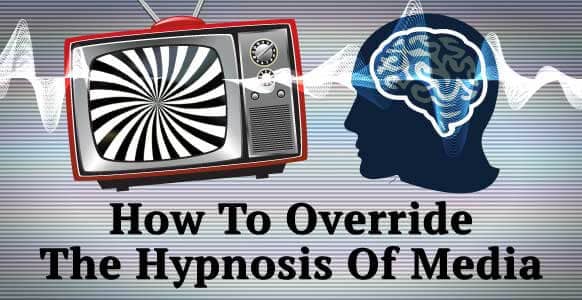
Your body is an amazing machine.
On the one hand, it’s a delicate structure of skin and bone.
On the other, it’s able to control a ton of complex processes all at once.
Like breathing and digestion. Blood circulation. Muscles and movement. Balance and coordination.
It makes it possible for you to walk, talk, think, write, play, sleep, eat, dream, touch, taste, smell, imagine, hear, and laugh.
And many of these at the same time.
Just think about when you bend down, pick up a ball and throw it. In that one everyday motion you’re using depth perception, muscle control, strength, and hand-eye coordination. You’re also judging distances.
It explains how you can ride a bike, chew gum, hum a tune, and still keep your eyes and ears open.
And those are just the simplest of examples.
Yep, your body’s truly awesome.
It handles a wide range of operations to take care of your physical, emotional, and intellectual needs.
Yet for all its complexity, there are limits to what it can do.
This is partly because people are individuals with their own unique ways of doing things. It’s also affected by the kind of lifestyle you lead and your own levels of sensitivity.
Bodies are brilliant for sure, but they’re not perfect.
They’re not infallible machines like Data from Star Trek.
Sometimes the stresses and strains of living causes them to malfunction.
And when they do, that malfunction often manifests itself in the form of a physical problem.
What Causes Irritable Bowel Syndrome (IBS)?
Despite years of extensive research, the exact causes of IBS remain unknown.
What scientists do agree on is that it’s related to problems with digestion, sensitivity to stomach pain, and high levels of stress or anxiety.
As with so many things, the physical and psychological elements are often linked together.
Take your digestive system as an example. It tells you if you’re hungry or full by sending messages to the brain. That’s how you know when to eat, when to stop eating, and when to go to the toilet.
But what if you’re oversensitive to those messages?
What one person might shrug off as mild indigestion, another might experience as discomfort. The longer it goes on, the more distressing it becomes. That produces more stress and anxiety, upsetting the body’s chemical balance and throwing the digestive system off-kilter.
Research shows that certain foods act as IBS triggers. Every case is different, but some of the common culprits include:
- Chocolate
- Tea, coffee and caffeinated soda
- Alcohol
- Fried or fatty food
- Processed food like chips and cookies
Symptoms can come and go and are usually more noticeable after eating. People who suffer from IBS may experience one or all of the following:
- Stomach pain or cramps
- Diarrhea and/or constipation
- Bloating or swelling of the stomach
- Excessive wind
- Heartburn
- Muscle pain
- Nausea
Most people experience some kind of digestive upset at some point in their lives. This is because the bowels aren’t emptied regularly like clockwork. It’s estimated that between 10% and 20% of people in western countries suffer from the complaint.
The condition is more common in females than in males, and in younger people compared with older people. There’s also a strong link to emotional tension, with symptoms brought on by stressful changes, difficult situations, or traumatic events.
As of yet there is no cure for IBS.
Treatments using medication might only mask the symptoms rather than addressing the underlying cause.
Dietary advice can help, but because everyone is different it may take a long time before there is any practical effect.
So what can you do?
How To Manage The Stress Of IBS
Hypnotherapy has been proven to reduce the symptoms of IBS or eliminate them completely.
In terms of the options available, hypnotherapy is one of the most popular – and most successful. Here’s why:
- It’s natural
- It’s painless
- It’s non-invasive
Hypnotherapy can do what other forms of treatment can’t do. It can get to the root of the problem.
It allows you to connect with the unconscious mind and address the issues from the inside out.
It can give sufferers the tools to manage the condition by reducing their discomfort, sensitivity, and stress levels.
Sounds great, right? But how does it do it?
If you think about it, it’s pretty obvious. IBS brings discomfort, which leads to stress. But just thinking about it flaring up can also bring on anxiety. So one of the keys to tackling it lies in keeping stress and anxiety under control.
As you know, the opposite of stress is relaxation. And hypnotherapy is the perfect technique for helping people relax.
3 Ways Hypnotherapy Eases IBS
When you’re stressed, your heart beats faster.
You sweat more. Your muscles tense up, meaning blood flows to them and away from your bodily functions.
When you’re relaxed, your heart rate slows. Your muscles calm down, and blood flows away from your muscles and back to other parts of your body. Like your digestive system.
2. Prevents Hormones From Firing Up To Harmful Levels
When you feel stressed, it’s a sign that your body is producing an excess of stress hormones such as cortisol and adrenalin.
Under normal circumstances that wouldn’t be a bad thing. They’re the same hormones that keep you alert. They’re the same ones that get activated through your fight-or-flight response. They’re perfectly natural and often essential.
The problem occurs when your stress levels are higher than usual and for an extended period of time.
Your digestive system is a delicate piece of engineering. When there’s a surplus of these hormones floating around, they can interfere with the way it functions.
Hypnotherapy can be used to encourage relaxation, helping to keep these hormones at less harmful levels.
3. Help You Change Habits
It’s no secret that hypnotherapy is great for changing habits.
A simple suggestion can help you think and act in different ways.
It can give you the power to start thinking positive. To stop getting stressed. To nip anxiety in the bud whenever you feel it rising up.
It can also help you make relevant lifestyle changes. Like avoiding food or activities that you know will bring on the discomfort.
Proof That Hypnotherapy Works
According to Peter Whorwell, Professor of Medicine and Gastroenterology in the School of Medicine and Director of the South Manchester Functional Bowel Service, hypnosis is the perfect treatment for IBS.
Professor Whorwell has been researching the use of gut-directed hypnosis for over 20 years, and claims hypnotherapy has a 70% success rate.
That’s a number drug companies wouldn’t quickly (and loudly) boast about.
While working with IBS using hypnotherapy can be labor-intensive, it’s a lot cheaper than drugs.
It also helps with all of the discomfort, while alternatives like medication reduce only some of it.
Another advantage is that with hypnotherapy sufferers learn how to take more control over their digestive system. They get the tools to influence the way their brain and gut interact.
There aren’t any pills that can do that.
Hypnotherapy helps them become more aware of their bodies and the signals they send out. And that makes managing the condition a whole lot easier.
Swedish doctoral student Perjohan Lindfors says that hypnotherapy should be standard treatment for IBS sufferers. Research at Sahgrenks Academy at the University of Gothenburg found that hypnotherapy improves the quality of life and leads to high patient satisfaction.
Even when the treatment is not provided by specialists.
Lindfors encourages deep relaxation followed by customized hypnotic suggestions. The idea is to either get patients focusing their attention on the symptoms – or redirecting it away from them.
The study demonstrated that hypnotherapy can provide lasting and effective relief. Two groups were given hypnotherapy, one in a specialist center and one in a small county hospital. A third control group was given none.
None of the groups had responded to other forms of therapy before the study began.
So what were the results? The group in specialist centers showed a slightly better improvement than those in non-specialist ones, while the control group showed no improvement at all.
Whether the stress brings on the IBS, or vice versa, one thing is certain: Control the stress and you’re on your way to a more comfortable and enjoyable future.
And the safest, easiest, least expensive way to do that is with hypnotherapy.
Please note that if you suffer from IBS, or know someone that does, always seek professional medical advice before undergoing any form of new treatment.







![Yogic Breathing For Hypnosis: 3 Easy Techniques To Ground & Relax Your Clients Before Inducing A Hypnotic Trance [Includes Infographic] Yogic Breathing For Hypnosis: 3 Easy Techniques To Ground & Relax Your Clients Before Inducing A Hypnotic Trance [Includes Infographic]](https://hypnosistrainingacademy.com/wp-content/uploads/2019/05/yogic-breathing-for-hypnosis.jpg)





